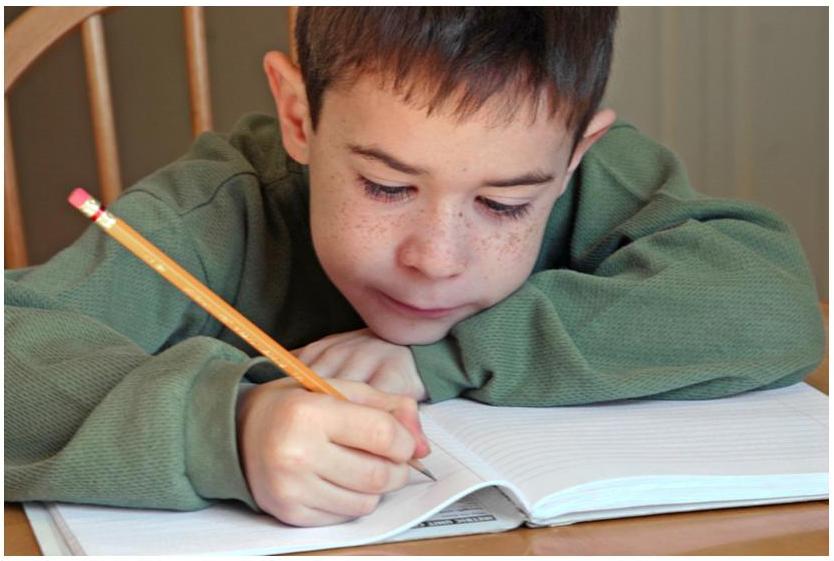Writing
Great things are expected of the pupils, especially towards the end of Key Stage Two despite there still being a gap between their reading skills and material and their writing skills.
• The main consideration at this stage is for the students to think carefully about what they want to say before they write it as verbal skills are usually somewhere between the language skills gained from reading and those used in writing and so can help to narrow the gap. Planning receives a strong weighting, partly because it helps pupils to think about the language they’ll use, improving their technique.
• Writing for a range of purposes at this age is even more important as it broadens language usage and grammar. Once more, writing based on non-fiction often comes off a poor second to fiction so, where possible, provide opportunities to work on factual pieces.
• Of interest in the new curriculum is the opportunity to use experience of classic literature to write in that style. Use extracts from classics and whilst using the age old ‘continue the story’ exercise, ask them to continue it but in the same style so that reading the original plus their work is seamless.
• Working on grammar asks the pupils to consider writing in different ways. Whilst we’ve been used to changing tense and person, now we have to consider voices, clause types and write using them. This can be done orally or in writing by asking the pupils ‘Is there another way we could say that?’ and then together, analyse their responses.
Spelling
Spelling in Key Stage Two is not just about the encoding of familiar and new words. It’s about using skills and knowledge of rules to be able to talk about why a particular word is spelt the way it is or why it’s not spelt as you’d think. It involves a little work on grammar and punctuation too with knowledge of prefixes, suffixes, contractions and homophones using contextual clues.
• When discussing the spelling of unfamiliar words or the meanings, try to discover the origin of the word. Sometimes that gives us clues as to why it’s spelt in a particular way.
• Subject specific words are more common now and knowledge of roots comes in very useful to explain their meaning and to spell them.
• At this age, pupils can recognise if a word is spelt incorrectly so instead of a standard spelling test, give them an editing task with assessed words, some spelt correctly, others incorrectly.
• Practise using ‘spelling bees’ to fill in spare time or as a lesson starter. By this age, pupils need to be able to visualise a word and be able to spell it without writing it first. To make the task less stressful, go around the class asking for a letter at a time, differentiating who you’ll ask by the probability of the next letter.
Dave Lewis
Primary teacher




